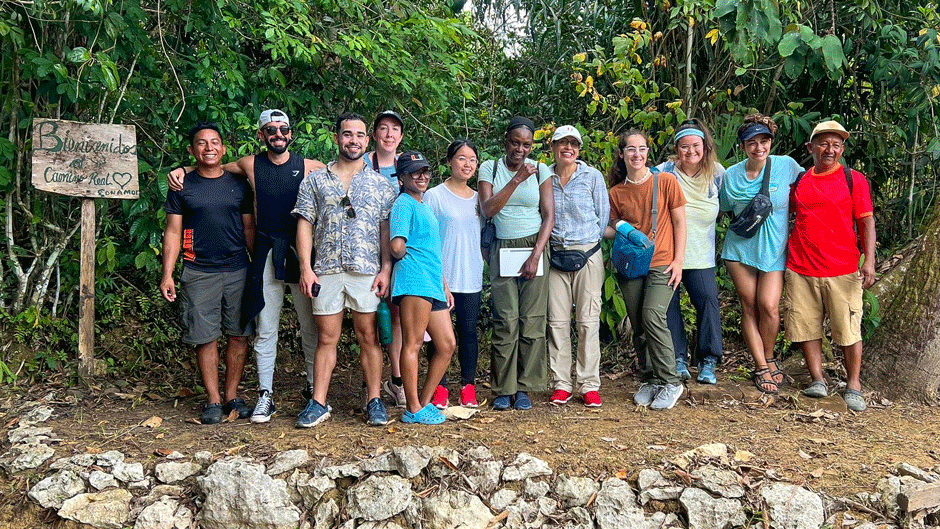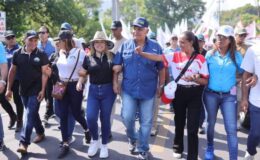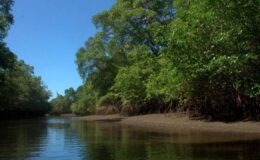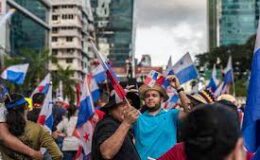University of Miami- “The U”, focusses on Panama for their Environmental Sciences
- By : James Bryson
- Category : Conservation, Education

https://news.miami.edu/stories/2024/03/panama-trip-offers-new-perspectives.html
Until recently, Carmen Chavez had spent just a few days in Panama, but never got the chance to truly understand its history and culture.
Yet during spring break, Chavez, a doctoral student studying environmental science and policy, along with 12 other graduate students studying law or the environmental sciences spent the week in the central American nation learning about its history as a shipping thoroughfare, and its progress in coastal management and ecotourism.
“Panamá is a beautiful place with phenomenal, generous people,” said Chavez, a native Peruvian who is earning her Ph.D. in the University’s Abess Center for Ecosystem Science and Policy. “It’s a country of geographic, biological, and cultural diversity, and it has been so central for global commerce that its people have been stirred constantly with so many different cultures passing through.”
Guided and organized by Daniel Suman, professor of environmental science and policy at the Rosenstiel School of Marine, Atmospheric, and Earth Science, and a native Panamanian, the students spent a week learning about the conflict between the nation’s environmental protection policies, as well as the isthmus’ desire to grow economically.
As part of the class, called “Tourism, Conservation, and Development: Fieldwork in Coastal Management,” students visited the Panama Canal locks and spoke with the canal’s director of watershed management, said Suman, who also serves as adjunct professor in the School of Law. They learned about the challenge to provide enough drinking water for Panamanians from Lake Alajuela, which feeds water into the Panama Canal, while also keeping up with the ship traffic through this major trade route. The class also spoke with environmental groups about the deforestation of its mangroves as part of the explosive growth of Panama City.
As a former Spanish colony, the nation has several historical sites in its capital, Panama City, and the class visited a few of them. They learned from archaeologists and restoration architects about the UNESCO World Heritage sites of the San Felipe Old Quarter and “Panamá Viejo,” founded more than 500 years ago by Spanish explorers. The group also stopped by the Smithsonian Tropical Research Institute, and learned about the nation’s vast tropical forests, rich ecosystems, and efforts to craft sustainable solutions to its socioeconomic and environmental challenges.
The students also spent four nights living inside the forests of Chagres National Park with families in the Quebrada Ancha village, who are trying to attract tourists to the area. Just a few kilometers from the village, students enjoyed hiking part of the Camino Real, an old Spanish colonial road once used for transporting Peruvian gold and silver from the Pacific Ocean to the Atlantic Ocean. Isabella Lopez, a master’s candidate from the Rosenstiel School, said she enjoyed traversing the route and seeing a sloth along the way.
“Having the opportunity to go to a different country as part of a class is really cool, and this was an incredible experience that I don’t think too many people get to have,” Lopez said.
Now, students are crafting research projects about their Panama experience, which will integrate interviews with locals and experts conducted during the trip. Chavez is working on a piece about the tension between natural beauty, which most Panamanians feel is their country’s strongest asset, with their struggle to survive economically. This has resulted in some people living in the Chagres River watershed killing native jaguars to save their own cows, and others converting forest to agricultural lands. Meanwhile, some of these people are also trying to build their own tourism businesses, so that they have alternative livelihoods to subsistence farming.
Speaking to Panama residents about these different obstacles was Lopez and Chavez’s favorite part of the trip.
“It was an incredible experience getting to know real people with a long history attached to the natural place where they made their family, and their living,” Chavez said. “That type of connection to the land is often hard to find in American society, so seeing these families so deeply rooted in a place was fascinating and very enriching.”



No Comments